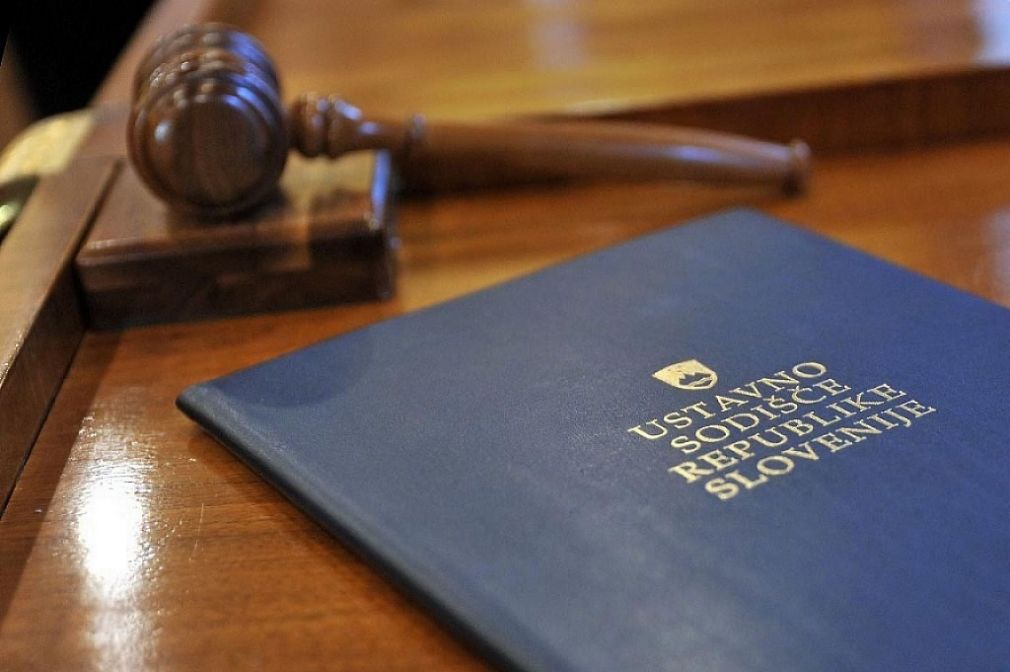By: Luka Perš / Nova24tv
“The Constitutional Court, with an unconvincing majority and a great deal of doubt, reflected in the dissenting opinions of constitutional judges, found an inconsistency of the second and third paragraphs of Article 39 of the Infectious Diseases Act with the Constitution, whereby two distinct substantive deviations really jump out,” commented Dr Miha Pogačnik, otherwise president of the Institute of International Law, on the latest decision of the Constitutional Court.
According to lawyer Miha Pogačnik, the first problem arises in the inadequate weighing of the importance of endangering human lives, the entire population and nation in an extreme and in a century-long section unique and exceptional pandemic situation compared to the two provisions of the Constitution regarding normal freedom of movement and association of people under normal circumstances. The second deviation is in the oversight of the purpose of the relevant provisions, which, in the opinion of the legal expert, the Constitutional Court erroneously assessed as under-regulated.
Precisely with these provisions, the purpose or the ratio legis of the legislator was to establish an appropriate legal basis for situations and circumstances which are not and cannot be foreseeable. Therefore, such a situation as an epidemic cannot be normalised. To this end, it was necessary to provide the government with a solid and sufficient legal basis for immediate appropriate action in a crisis situation. “In this sense, the decision of the Constitutional Court has no added value, because even in the case of additional standardisation of both provisions (which is required of the National Assembly), which, given that these are unforeseen situations, would be on the verge of impossible, the same problem would exist at the first similar serious crisis,” Pogačnik believes, adding that no one can predict what will happen and even less exhaustively and in detail predict the circumstances that may occur, and if the Constitutional Court will remain in such a practice. According to him, additional standardisation will not prevent “unconstitutionality” at the first subsequent threat. Moreover, in the case of new situations that will not be explicitly covered by the norm, additional standardisation can lead to inactivity of the executive branch and terrible and unpredictable losses, given the specific constitutional court ruling and taking into account the rule of knowing and respecting decisions of the Constitutional Court.
The Constitutional Court imposed similar nonsense as in the case of the extension of measures in the Official Gazette
According to Pogačnik, another aspect concerns the disputed government decrees. The fallen laws were drafted in accordance with a long-standing provision of the Infectious Diseases Act (ZNB) (then in force). Because the Constitutional Court annulled the disputed decrees (which are no longer valid anyway) and at the same time extended the application of the provisions of two paragraphs of Article 39 of the ZNB, which are allegedly unconstitutional.
Pogačnik warns that it may happen that the government now, within an interval of two months, adopts exactly the same decrees on the basis of both provisions in the same record as the disputed decrees, which according to the Constitutional Court will now be valid but were not before. Namely, the Constitutional Court problematizes decrees at a time when not all dimensions of the epidemic were known, but allows their validity now that the picture is much clearer and the application of both provisions of Article 39 of the Infectious Diseases Act are less intervening. Moreover, earlier, when the disputed decrees were adopted, the ZNB was in full force, but now it is only provisionally applied and allows the adoption of identical decrees.
Furthermore, according to Pogačnik, the decision of the Constitutional Court leads to a multifaceted situation for individuals, where otherwise the procedures that have been legally concluded will probably not be problematic and will not affect them. On the other hand, proceedings that have lost their legal basis are ongoing, which instructs the government to remedy the legal gap created by the Constitutional Court within a two-month period and actually confirm the legal nonsense created by the Constitutional Court as described in the previous paragraph. In the opinion of our interlocutor, the Constitutional Court again imposed additional work on the government with legal nonsense, similarly to the case of legal nonsense of unnecessary extension and publication of government decrees.

